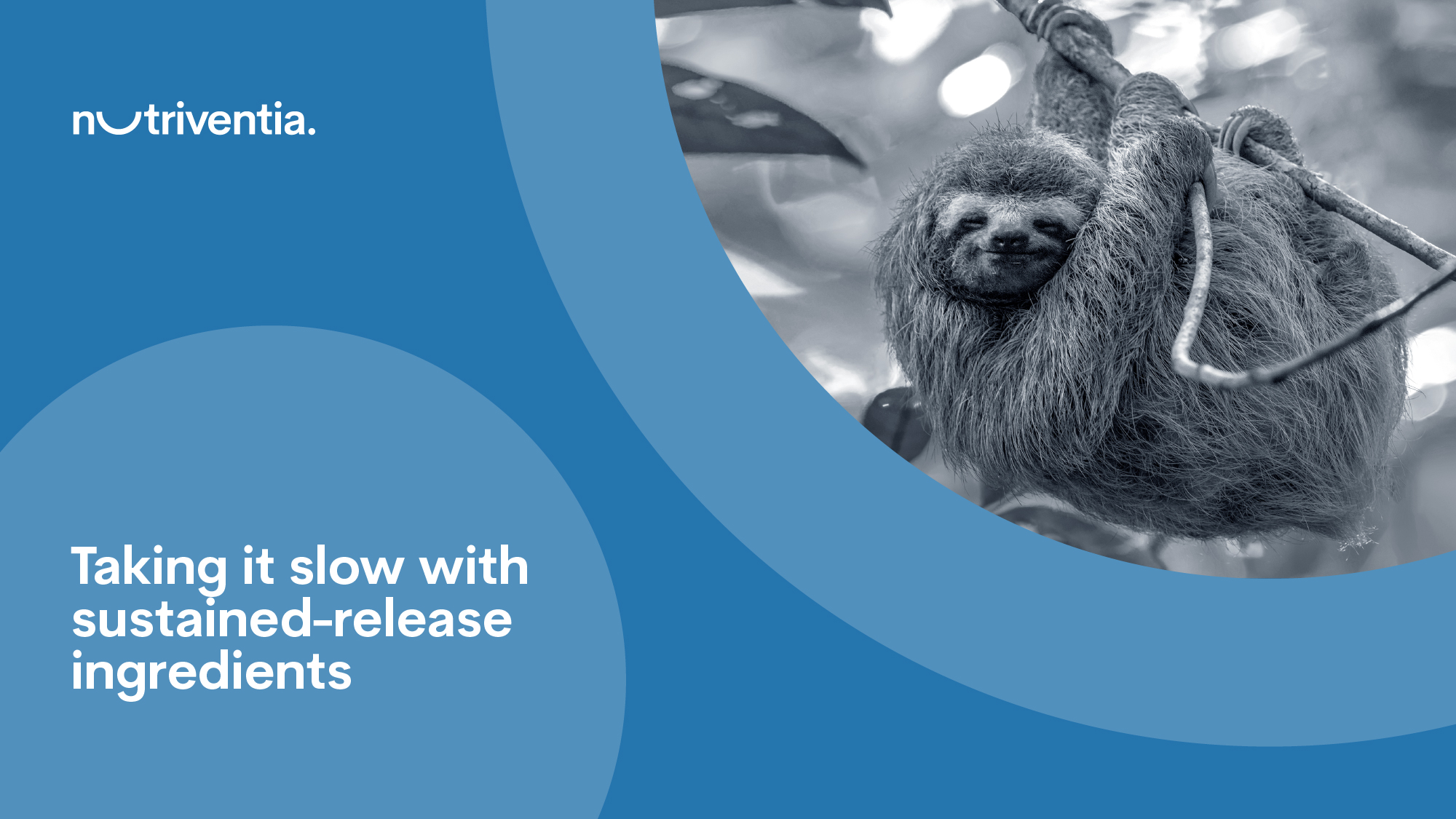Stress is a part of life. Nobody is immune. And it is generally and widely understood by consumers that stress impacts and impairs their health and well-being. Runaway stress also reduces the quality of a workout, or a sports performance on the court, field, pool, trail or arena.
It can be a vicious cycle, too. Exercise and high-intensity movement may exacerbate physical stress response, such as when muscles endure micro-tears as they grow larger and stronger. Stress can also cause poor sleep, which will derail a quality workout or performance by reduced energy and increased brain fog.
In short — sports/active lifestylers will benefit from a natural stress reduction product, be it a supplement, bar, powder or a beverage. One of the most effective ways to induce the body to manage stress response long-term is the daily consumption of an adaptogen, and the most potent adaptogen is ashwagandha (Withania somnifera).
Ashwagandha can compete in the sports/active lifestyle market. For example, according to a recent report from Nutrition Business Journal, the third top reason why regular sports/active nutrition users consume these products is to address a specific health condition, such as stress/mood, sleep, and immunity (12%). 1
Ashwagandha also fulfills two reasons why generally active consumers plan to purchase a sports/active nutrition lifestyle product: it is a clean, simple and easily identifiable ingredient and provides added functional benefit (eg, stress reduction/sleep promotion). 1
Ashwagandha is also purposefully sought out by sports/active nutrition users (4%) who say they prefer it in their energy beverages or supplements. This number, we believe, is likely to grow as more consumers discover the benefits of ashwagandha for their workouts, chiefly to lower stress and improve sleep for improved exercise and performance quality and endurance.
A Note about Stress
According to researchers, “Stress is generally expressed as a psychological or physical response to internal or external stimuli that challenge one’s resources for adaptation.“ 2 The harmful effects caused by stress are thought to be channeled through hypothalamic-pituitary-adrenal (HPA) axis, which stimulates cortisol secretion by the adrenal cortex in response to perceived and physical stressors. Cortisol, the “fight or flight” hormone, is useful in appropriate amounts, but too much for an extended duration can be detrimental.
In tandem, HPA-axis activation disrupts sleep, and, according to the researchers, subpar sleep stimulates the HPA axis’s basal activity. 2
A meta-analysis of 55 studies explored the relationship between stressors and physical activity. A common issue is that high stress interferes with the fitness routine, meaning that many people will forgo exercise and practice if they feel too stressed out. 3 The authors assert, “Recent evidence suggests that one’s experience of stress may be an important impediment for achieving healthful levels of PA [physical activity].” 3
Stress is known to interfere with sleep and sustained focus, which is necessary for effective workouts and excellence in competition. So addressing stress response will help the focus aspect of physical activity.
Stress-Busting with Ashwagandha
Ashwagandha is one of the hottest ingredients consumers turn to for stress management and supporting focus.
In Ayurveda, ashwagandha root is known as a rasayana, or adaptogen, helping to bring the body back into healthful balance and keep it resilient. There are several studies analyzing how varied ashwagandha supplements affect stress. One 8-week study using both 250mg and 600 mg ashwagandha extract or placebo daily found that the herb reduced serum cortisol levels, and those taking ashwagandha reported significant improvement in sleep quality. 4
Researchers in another study gave participants ashwagandha root extract (300 mg twice daily) or placebo. After 10 weeks, significant improvements were observed in several sleep parameters such as sleep onset latency and sleep efficiency. 5
An Innovative Ashwagandha
Active individuals have a full day and may often forget to take — or don’t want to have to take — yet another dose of ashwagandha. But the desire to reduce the impact of daily stress is strong, especially when it interferes with one’s fitness routine, game or match.
There is an ashwagandha ingredient that provides sustained, even efficacy in just one dose. Prolanza™ is an innovative sustained-release, science-backed Ashwagandha root extract that contains a broad spectrum of 20 active withanolides (10 that are USP-compliant).
A study of 125 healthy participants analyzed potential effects of ashwagandha (sustained release) on Perceived Stress Scale (PSS) in 125 participants with a PSS score ranging from 14 to 24. After 90 days, those taking SR ashwagandha showed significant reduced PSS score and serum cortisol levels and Pittsburgh Sleep Quality Index score, as well as a high Oxford Happiness Questionnaire score compared to placebo. And, stated the researchers, supplementing with sustained-release ashwagandha also improved focus and memory in this study group. 6
This ashwagandha, Prolanza™, went head-to-head in a comparison study. Researchers gave 14 healthy participants either Prolanza™ or the competitive ashwagandha, a well-known brand; each contained 15 mg withanolides per dose. The pharmacokinetic study showed that for the first time the successful plasma estimation of withanolide A and 12-deoxywithastraamonlide (major phytoactives in ashwagandha root). 7
Stress is a 360-degree phenomenon, so building the body’s healthy response will help promote better workouts and performance in the long run.
References:
- Nutrition Business Journal, “Sports Nutrition and Weight Management Report 2023,” pp. 2, Survey was launched February 2nd 2023, Last Accessed 06/22/23.
- Gopukumar K, et al. Evidence-Based Complementary and Alternative Medicine 2021, https://doi.org/10.1155/2021/8254344
- Stults-Kolehmainen, Sinha Sports Med 2014 Jan; 44(1): 81–121.
- Salve J, Cureus 2019 Dec 25;11(12):e6466
- Langade D, Cureus 2019 Sep 28;11(9):e5797
- Gopukumar Evidence-Based Complementary and Alternative Medicine 2021 https://doi.org/10.1155/2021/8254344
- Alluri International Journal of Basic & Clinical Pharmacology 2022 Jan;11(1):26-34



